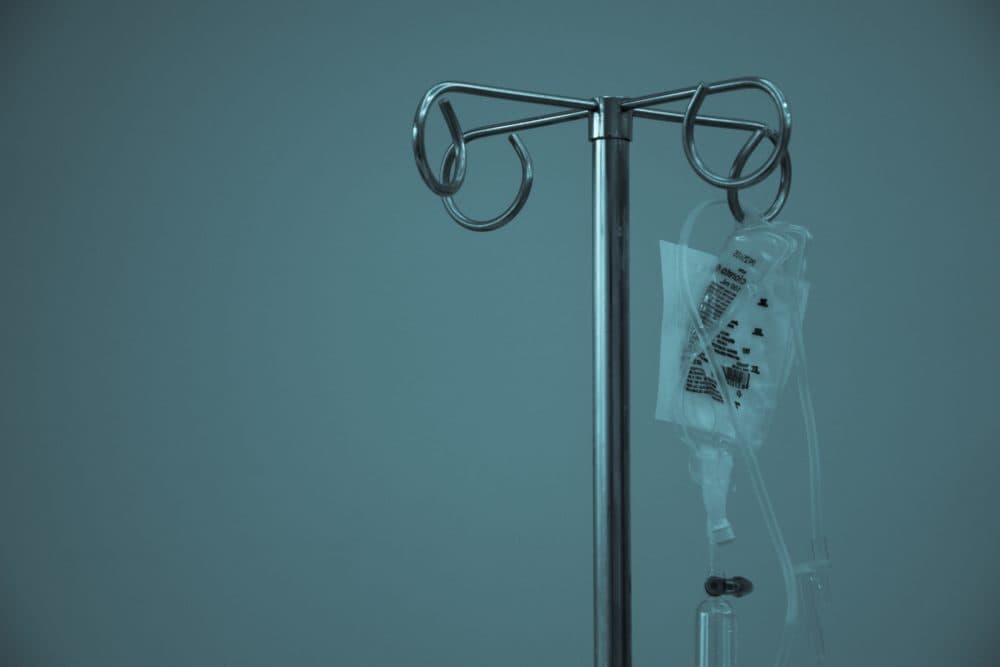Advertisement
Commentary
The Problem With Fragmented Medical Records: I Can't Treat My Patients

“I’m sorry, Doctor,” she said, “you need to send us a fax to request these culture data.”
My patient lay in her ICU bed as her immune system fought a monstrous infection. We needed desperately to know the name of the microbe that was trying to kill her. But that vital information was at a neighboring hospital, where my patient had been admitted before she was transferred to us.
Critical minutes ticked by but the medical records manager of the other hospital insisted I send a distorted message via 19th-century technology before she would release the information. I grunted, scrawled my request, and faxed it to her — punching the keys hard, in frustration.
My colleagues and I may be irritated but our patients suffer pain and delays in their diagnosis and treatment. Patients often bounce among some of the approximately two dozen hospitals in Greater Boston. Their medical data get scattered.
This can happen because acutely ill patients are often rushed to the nearest hospital. But if that hospital doesn't have necessary services — such as a neurosurgical team — patients are transferred to a tertiary center such as mine. Records sent with patients are often incomplete. Tests like blood cultures might be pending and physicians at the receiving hospital must call repeatedly for updates. Weekends, when most medical records offices are closed, are even harder.
[C]ountless patients suffer the steely stabs of our needles as we repeat tests that they received just hours ago in different facilities.
Physicians commonly sift through mounds of nursing notes, medication records and other notes to understand complex medical histories. And so countless patients suffer the steely stabs of our needles as we repeat tests that they received just hours ago in different facilities. Claustrophobic patients brave the disconcerting confines of our CAT scan and MRI machines because their previous images languish in the records of other hospitals. Critically ill patients are tethered to IV poles and endure endless infusions of antibiotics — each with their assorted side effects — as we wait to learn the details of their infections.
Their families watch with uncertainty, often incredulous as they hear the same refrain day after day: “We're waiting for the records.”
Not only does the fragmentation of records worsen the care we provide, but it also increases costs. An echocardiogram of the heart costs about $300, even with private insurance; a chest CAT scan costs about $400. Imagine paying for them twice for no reason. A study from Boston Children’s Hospital estimated that one in three patients received duplicate tests because of fragmented health records. Nationally, this leads to astronomical wastage of health dollars.
Although a universal electronic medical record remains a distant dream in the United States, several states have introduced health information exchanges, or HIEs, to decrease duplication of care and decrease delays. Indeed, a University of Michigan study showed that implementation of HIEs — medical exchanges between unaffiliated hospitals and other medical organizations — halved redundant CAT scans, ultrasounds and X-rays. According to a University of Notre Dame study from 2015, national implementation of an HIE could save over $3 billion in Medicare expenditure in a year.
Not only does the fragmentation of records worsen the care we provide, it also increases costs.
I’ve experienced the power of HIEs. In Boston, facilities that use the Epic electronic medical record system can share some data. I recently cared for a patient whose CAT scan at my hospital showed some chronic lesions in her lung. A quick review of the Brigham records through the shared system revealed that those lesions were new and that she had an incompletely treated heart valve infection. We quickly started therapy for the deadly infection that had spread from her heart to her lung, saving her life. Unfortunately, records at several area hospitals remain tantalizingly out of reach, frustrating the care of our patients.
Massachusetts instituted its own HIE called “Mass HIway" in 2012 with some fanfare. But the implementation remains spotty seven years in. How do I know? In academic hospitals, resident physicians bear the primary responsibility of obtaining records from other hospitals. None of the residents I spoke to from four of the largest Boston training programs had heard of Mass HIway. Even the medical records staff were unfamiliar. It’s like inventing penicillin and forgetting to inform doctors.
Boston is arguably the mecca of medicine today. It would take a thick tome to catalog the transformative medical innovations made in this smallish city. And yet we tolerate a primitive data exchange system that delays care and adds unnecessary expense. Surely, implementing an effective HIE would be a lesser feat than organ transplantation, limb reattachment and pediatric cardiac surgery — all pioneered here.
It’s time to end the fragmentation of care for the sake of our patients. A doctor’s place is by the patient’s bedside, not in the shadow of their fax machine.
